FIU Faculty Experts
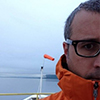
Assoc. Professor of Earth & Environment and Associate Dean, College of Arts, Sciences & Education
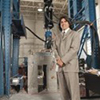
Professor and Chair, Civil and Environmental Engineering
Dr. Azizinamini has received a number of awards, including the Civil Engineering Research Foundation (CERF) Charles Pankow Award for his innovative bridge system, the American Institute of Steel Construction (AISC) Special Achievement Award for his significant contributions to steel bridge engineering and its impact on the steel industry, the AISC’s 2005 Prize Bridge Competition Merit Award for his outstanding design in structural steel-Medium Span Bridge Category, the American Iron and Steel Institute (AISI) Innovation in Steel Bridge Award for his valuable contributions to High Performance Steel, the Federal Highway Administration (FHWA)
“Partnership in Excellence Award” for his contributions to the Accelerated Bridge Construction, and the FHWA’s “Major Achievement Award” for promoting the use of High Performance Steel in the U.S. The White House and the U.S. Department of Transportation honored Atorod Azizinamini in 2015 as one of 11 “White House Champions of Change” for his cutting-edge innovations in short-span bridge technology.
Dr. Azizinamini’s research activities have been diverse. In the early 1990s he conducted a number of projects funded by the National Science Foundation to develop technologies for utilizing High Performance Concrete in buildings and bridges, with an emphasis on highly seismic areas. In 1995, he was selected through NSF to be a member of the U.S. delegation to work cooperatively with Japanese researchers to develop technologies for the next generation of high-rise buildings in seismic regions. Dr. Azizinamini has served as an advisor to projects in many countries, including the Republic of Korea, for incorporating advanced materials in bridges.
Additionally, when Congress established the second strategic highway research program (SHRP 2) in 2006 with $232M funding to advance the nation’s transportation infrastructure, the Transportation Research Board of the National Academy of Sciences identified three topics in the bridge engineering area. Dr. Azizinamini is the principal investigator leading one of the three initiatives (SHRP2 R19A), with an objective of developing technologies for bridges with 100+ years of service life. As part of his multi-million dollar project, Dr. Azizinamini is developing the most comprehensive guide worldwide entitled “Guide for Bridges for Life,” for enhancing the service life of bridges. This guide is expected to have long lasting effect on how bridges are designed, constructed and maintained.

Assoc. Professor Religious Studies and Humboldt Fellow, Schiller- Universität Jena
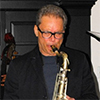
Professor and Area Coordinator of Jazz Studies, Saxophone
He appeared on records alongside Randy Brecker, John Abercrombie, Dan Wall, Adam Nussbaum, David Friesen, Ira Sullivan, and others. He has shared concert, festival and night club stages with (in addition to the above) John Scofield, Dave Liebman, Tom Harrell, Jaco Pastorius, Dr. Lonnie Smith, Andy Laverne, Red Rodney, James Moody, George Adams, Hank Crawford, Mose Allison, Conrad Herwig, Barry Ries, and is currently touring and recording with the Miroslav Vitous Quartet. Since moving to Miami in 1982 Gary has become a prominent figure on South Florida’s jazz scene – giging and recording with jazz greats Ira Sullivan, Dr. Lonnie Smith, Bobby Thomas Jr., Andy Laverne, and the great Cuban drummer Ignacio Berroa. A Fulbright Scholar, Gary is a sought-after jazz educator both in the U.S. and in Europe. He taught for 12 years at the University of Miami (where he earned a Master of Music Degree in Jazz Performance), is now Associate Professor of Jazz Saxophone, and Coordinator of Jazz Studies at Florida International University in Miami.
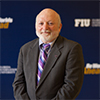
Professor of Anthropology and Director, Cuban Research Institute
Dr. Duany has published extensively on migration, ethnicity, race, nationalism, and transnationalism in Cuba, the Caribbean, and the United States. He has also written about Cuban cultural identity on the island and in the diaspora, especially as expressed in literature, music, and religion. He has belonged to the editorial boards of academic journals such as Cuban Studies, Latino Studies, CENTRO: Journal of the Center for Puerto Rican Studies, Caribbean Studies, Latin American and Caribbean Ethnic Studies, and New West Indian Guide. He is the author, coauthor, or editor of 20 books, including Puerto Rico: What Everyone Needs to Know (forthcoming); Un pueblo disperso: Dimensiones sociales y culturales de la diáspora cubana (2014); Blurred Borders: Transnational Migration between the Hispanic Caribbean and the United States (2011); La nación en vaivén: Identidad, migración y cultura popular en Puerto Rico (2010); How the United States Racializes Latinos: White Hegemony and Its Consequences (2009); The Puerto Rican Nation on the Move: Identities on the Island and in the United States (2002); and Cubans in Puerto Rico: Ethnic Economy and Cultural Identity (1997).
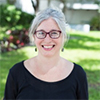
Assoc. Professor, History and Office of the Provost Faculty Fellow
Dr. Friedman has participated in multiple interdisciplinary programs and served in numerous administrative capacities, including her role as Director of the Miami-Florida European Union Center of Excellence/Director of European and Eurasian Studies for six years. She has served as PI for numerous grants from the EU Commission, which collectively have brought the university approximately one million dollars in grant monies and institutional supports. She currently continues to Director FIU’s Polish Studies Program.
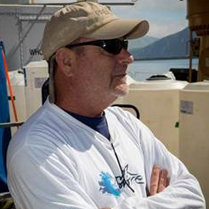
Professor and Assoc. Director, Applied Research Center
In 2015 he led as chief scientist a multimillion-dollar U.S. Arctic GEOTRACES initiative. His research team consisted of 51 scientists, students and technicians conducting experiments to map out the Arctic Ocean’s geochemistry and generate the most comprehensive understanding of the Arctic’s chemical composition ever. This historic initiative part of an international, collaborative effort between the United States, Canada, Germany and scientists from several other nations. Each country collected samples and provided analysis for different regions, aboard separate icebreakers.
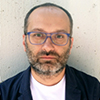
Assoc. Professor for Digital Media and Chair, Department of Art & Art History
Through his creative work, Kolasinski has tested complex video installations, single and multiple channel projections, as a well as site-specific projects in the context of public architecture. His art work has reached large international audiences through presentations and exhibitions in numerous venues including: the Teatro Colon, Buenos Aires, Argentina: Festival Internacional Cervantino, Guanajuato, Mexico; 61 Festival de Cannes – Short Film Corner; Cinema Politic, Barcelona, Spain; and Digital Fringe, Melbourne, Australia, to name a few.
Kolasinski’s work is rooted in an international dialogue between two worlds: the “Old World” of Europe in Krakow, and the “New World” of the United States in multicultural Miami. These convergent worlds create a running theme that surfaces in many of his works: the search for identity in the vortex of cultural displacement. Prof. Kolasinski has been awarded a Florida Cultural Consortium Fellowship in the media and visual arts and the prestigious Kosciuszko Foundation Fellowship.
Most recently, his interest in “socially engaged academic performance art” has provoked several large-scale trans-disciplinary projects such as TAG (“The Art of Giving”) in Haiti, and “Tree of Unity” in Liberty City. These projects are testing boundaries between art and the “aesthetics of philanthropy” by mobilizing a number of what he describes as social actors or archetypes — from cheerleaders and athletes to art students and younger school children – to bring attention to the marginalized communities ridden by serious societal problems.
Kolasinski’s latest academic presentations at PSi #18 at the University of Leeds, UK and SECAC in Durham NC in 2012, proposed a theoretical context to his larger artistic practice that sets up situations that allow for performative explorations of social identities.
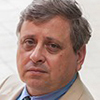
Ryder Professor of Marketing and Associate Dean, Chapman Graduate School of Business
Dr. Lassar earned his Ph.D. and MBA degrees from the University of Southern California in 1992 and 1985 respectively. A native of Germany, he also holds a degree in Industrial Engineering (Dipl.-Ing.) with a double major in mechanical engineering and business administration from the Technische Universität Berlin, Germany.
Dr. Lassar taught and researched at London Business School, the Owen Graduate School of Management at Vanderbilt University, the Whittemore School of Business and Economics at the University of New Hampshire, and the University of Miami. He has won multiple teaching and research awards and helped develop several new academic programs like the global Executive MBA and the re-launched integrated Executive MBA. In addition he initiated the Green Supply Chain Forum, and the Inter-American Supply Chain Forum, both international conferences at FIU that brought together academics, practitioners and regulators to discuss best practices.
Dr. Lassar researches issues in services marketing in the financial, healthcare and hospitality industry, marketing strategy in value chains (including channels of distribution and supply chains) as well as brand equity and sustainability. His research projects integrate domestic as well as international business dimensions and consider e-commerce aspects of customer behavior and competition. His research has been published in the Journal of Marketing, Journal of Business Logistics, Journal of Business Research, Journal of Retailing, Journal of Business Ethics, Journal of Business Venturing and the Strategic Management Journal among others.
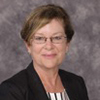
Professor of Public Administration and Vice Provost for Faculty & Global Affairs
Dr. Newman is recognized as one of the leading experts in the field of public management and the emotive aspects of work. Dr. Newman’s books have won numerous awards. Her contributions to the profession have been recognized by a series of awards, such as the Lifetime Achievement in Public Human Resources Scholarship Award of the American Society for Public Administration. Dr. Newman is past Chair of the Commission on Peer Review and Accreditation of the Network of Schools of Public Policy, Affairs and Administration; former Vice-President for North America, the International Association of Schools and Institutes of Administration; and Past President of the American Society for Public Administration. She is a Fellow of the National Academy of Public Administration.

Assoc. Professor Jazz and Director of FIU Latin Jazz Ensemble
Michael teaches jazz piano, jazz improvisation, and is director of the FIU Latin Jazz ensemble. Michael has released his debut album, FREEDOM TOWER on the Fantasy/Contemporary label. This CD features Paquito D’Rivera, Nicky Orta, Gary Campbell and others. Michael has two publications with Warner Brothers, “Jazz Pedagogy, The Big Band Resource Guide”, and “Jazz Etudes for Piano”. Michael has been actively touring with his group the Araya-Orta Latin Jazz Quartet. In 2010 they performed at the Rivera Maya Jazz Festival in Tulum, Mexico and at the National Theater in Costa Rica, with special guest artists Paquito D’Rivera and Diego Urcola. The group also performed at the Twin Cities Jazz Festival, the largest jazz festival in Minnesota in 2012. Michael was also a part of the “Bossa Sinfonico” project with Ramatis Moraes and Rose Max. This CD garnered enthusiastic reviews and was nominated for a Latin Grammy and won the prestigious Brazilian Press award as the CD of the Year 2014. The Araya-Orta Latin Jazz Quartet has recently released its newest CD featuring Paquito D’Rivera, Diego Urcola, and La Sinfónica National de Costa Rica to rave reviews. This CD was nominated for a Latin Grammy.
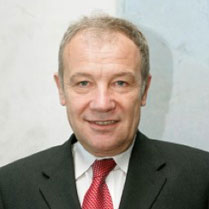
Senior Fellow, Green School of International & Public Affairs

Visiting Instructor, Department of Interior Architecture, Bauhaus Workshop International Student Trip
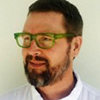
Senior Instructor of Architecture and Faculty Director, Bauhaus Workshop International Study Trip
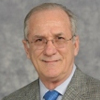
Professor of Criminal Justice, Director, Center for Administration of Justice, and Associate Vice President for Research
As the lead technical consultant to the Harvard Institute for International Development (HIID) and Harvard Law School Rule of Law Project in Central America, Salas worked on modernizing Central American property systems (real property, personal property, intellectual property and copyrights) as well as linking them with land cadasters. He also led an initiative of the Florida Attorney General to educate Spanish-speaking people about crime prevention and the legal system in the state of Florida.
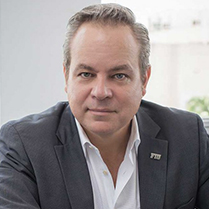
Associate Dean, College of Architecture + The Arts, Executive Director of the Miami Beach Urban Studios, Professor of Architecture
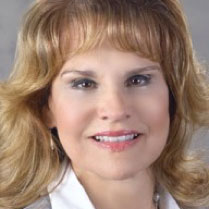
Executive Director, Applied Research Center, College of Engineering & Computing
In her role as Assistant Secretary, she led the largest, most diverse, and most technically complex environmental cleanup program in the world with an annual budget of $6 billion, a workforce of more 30,000 federal and contractor employees, and originally involving more than 2 million acres at 107 sites located in 35 states.
Under her vision and leadership, EM made unparalleled progress in cleaning the United States’ Cold War nuclear waste, materials, and facilities at sites across the country, reducing its footprint nationwide by 464 square miles–50 percent of the total amount to be cleaned up under the program when she became the Assistant Secretary. This cleanup was accomplished years ahead of schedule and millions of dollars under budget.
Guest Speakers
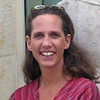
Associate Professor, Anthropology and Sociology, City University New York (CUNY)
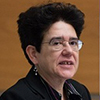
Institute for Latin American Studies, Freie Universität Berlin
I am sociologist and philosopher and since 2004 lecturer and researcher at the Institute for Latin-American Studies at the Freie Universität Berlin. Research activities on social inclusion and higher education, intersectionality and feminist theory, social movements, women’s and feminist movements, democratization and intellectual processes in Latin America, circulation of knowledge in the Caribbean. Since 2012 Coordinator of EU-ALFA III Project “Development of Policies to Promote Widening Participation and Equal Opportunities in Higher Education Institutions in Latin America” (MISEAL). Researcher in the interdisciplinary, international, and multi-institutional research network on social inequalities in Latin America (desigualdades.net) supported by the German Federal Ministry of Education and associated Scholar in the International Research Training Group “Between Spaces” (Berlin-Mexico) financed by the National Research Funding Institution DFG (Deutsche Forschungs Gemeinschaft).
Latest publications:
Zapata Galindo, Martha: Policies for Social Inclusion and Equity in Higher Education in Europe. In Robert T. Teranishi , Loni Bordoloi Pazich , Marcelo Knobel , Walter R. Allen (ed.) Mitigating Inequality: Higher Education Research, Policy, and Practice in an Era of Massification and Stratification (Advances in Education in Diverse Communities: Research, Policy and Praxis, Volume 11) Emerald Group Publishing Limited, 2015, pp. 311-336, en colaboración con Rocío Ramírez Rodríguez
Zapata Galindo, Martha: Inclusión social y equidad en las instituciones de educación superior de América Latina. Introducción. En: M. Rifá Valls, L. Duarte Campderrós y M. Ponferrada Arteaga (eds): Nuevos desafíos para la inclusión social y la equidad en la educación superior. Actas del III Congreso Internacional MISEAL, noviembre 2014. Universidad Autónoma de Barcelona, Observatoriode Igualdad y Universidad Nacional de Costa Rica: 2014: 8-15
Zapata Galindo, Martha et al. : Guía desde un enfoque interseccional. Metodología para el diseño y aplicación de indicadores de inclusión social y equidad en instituciones de educación superior de América Latina. Berlín 2014, en colaboración con Andrea Cuenca e Ismael Puga.
Zapata Galindo, Martha et al. (eds.): Interseccionalidad en debate. Actas del Congreso Internacional: “Indicadores Interseccionales y Medidas de Inclusión Social en Instituciones de Educación Superior”. Berlín 2013
Zapata Galindo, Martha: “Inclusión social y equidad en las instituciones de educación superior de América Latina”. En: Zapata Galindo et al. (eds.): Incluyendo sin excluir. Género y movilidad en instituciones de educación superior. Berlin 2013: 16-30
Zapata Galindo, Martha: Der Kampf um Geschlechtergerechtigkeit in Lateinamerika. Zur Geschichte eines ungeahnten Erfolges und einer dramatischen Ernüchterung. In: Elisabeth Tuider, Hans Jürgen Burchhardt, Rainer Öhlschläger (eds.): Frauen (und) Macht in Lateinameirka, Mannheim 2013: 53-70
Zapata Galindo, Martha (et al.): Inclusión social y equidad en las Instituciones de Educación Superior de América Latina. En: ISEES_Inclusión Social y Equidad en las Educación Superior. Julio-Diciembre 2013: 129-149
Zapata Galindo, Martha: Intersektionalität und Gender Studies in Lateinamerika. In: Querelles. Jahrbuch für Frauen. Und Geschlechterforschung. 2013 (http://www.querelles.de/index.php/qjb/article/view/7)
Zapata Galindo, Martha: El Caribe y sus Diásporas: Cartografía de saberes y prácticas culturales. Madrid 2011, Co-Edición con Anja Bandau
